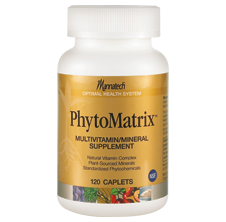It turns out that nuclear waste heavy metals and good nutrition have something in common, the Indian mustard plant.
When the Russians were looking for a way to remediate all the radioactive material spread by the meltdown of the nuclear power facility in Chernobyl they tried phytoremediation.
Phytoremediation is the direct use of living plants for in situ removal, containment, degradation, or rendering harmless contaminants in soil. Plants do this by taking up the materials in the soil by absorbing them through the root system.
The plant which Russian agronomists used was the Indian mustard plant (Brassica juncea) which has a prodigious absorption capacity. The Indian mustard plant has been nicknamed “nature’s magnet” and has a unique ability to absorb metals and minerals from the soil it grows in.
Whereas the Russians used it to remove dangerous levels of lead and uranium, scientists are now using the Indian mustard plant to help boost our intake of metals and minerals often lacking in our Western diet.
The Problem
Most people recognize the importance of a nutritious diet. Unfortunately, those people trying to eat a nutritious diet can find it quite challenging because of nutrient depletion in foods that are supposed to be healthy for us.
Modern corporate farming practices such as green harvesting have led to fruits and vegetables that are nutrient deficient (and potentially toxic due to chemical fertilizers).
Then, what little nutrition is left in the food is usually processed right out at the cannery and then finished off in the cooking process in the family kitchen.
Although eating more raw food is better, that still doesn’t result in putting more nutrients into food that is nutrient deficient when it’s harvested. Selecting organically grown produce gives us confidence that toxic chemicals have not been used in their production, but provides no assurance that they’re necessarily more nutritious for us.
Can nutritional supplements provide a solution?
With an eye toward good health, many individuals have turned to nutritional supplements to close the nutrition gap. 60% of Americans take some form of dietary supplement today. What most are not aware of is the quality of dietary supplement that they’re taking. Most vitamin-mineral supplements are made up of natural or synthetic ingredients which may be poorly absorbed and utilized by the body.
What’s wrong with the word “natural” on a vitamin-mineral supplement? Nothing, as long as you realize that rocks, dirt, and other materials are “natural”. For instance, iron in a supplement is typically ground up iron ore, which our body is not designed to recognize or utilize. Did you know that the most common source of calcium in nutritional supplements is limestone?
For a vitamin-mineral supplement to be optimally absorbed and utilized by the human body it should be as close to real food as possible, without synthetic ingredients made from petrochemicals, and “natural” ingredients sourced from rocks and dirt.
The ideal vitamin-mineral supplement should contain vitamins and minerals sourced from living plants that contain plant phytonutrients.
A study published in the Journal of Food Chemistry (vol 71, 2000) favorably compared absorption of minerals derived from plants to absorption of synthetic minerals from branded multivitamin products.
Enter the Indian mustard plant
The Indian mustard plant has proven to be an ideal method of producing plant processed vitamin-mineral supplements.
Scientists at one supplement company, Mannatech, are using state-of-the-art technology to grow Indian mustard plants hydroponically, in water infused with nutrients. The plants are fed a super cocktail of minerals. These, plus the ingredients already contained in the Indian mustard plant (vitamins, antioxidants and minerals and three times more calcium, potassium and iron than is found in ordinary green-leafed vegetables) make a powerful combination.
The Indian mustard plants absorb the minerals, store it in their stalks and leaves and are then harvested and dried. This material is then used to produce PhytoMatrix, a vitamin-mineral supplement in capsule form.
Mannatech claims that the vitamins in PhytoMatrix, from all-natural food sources, are more bioavailable, furnish more phytochemicals and offer more general health benefits than vitamins derived from other sources, and that because PhytoMatrix contains plant-sourced vitamins, this allows them to maintain their natural fibers, sugars and organic acids.
Conclusion
Supplementation appears to be a wise move considering nutrient deficiencies in our modern diet. Make intelligent choices when picking dietary supplements by scrutinizing the label to determine if the ingredients are real, natural, or synthetic.
You can find more on this subject in two articles at healthyscience.net: Natural, Synthetic, or Real Food Technology (part 1) and Natural, Synthetic, or Real Food Technology (part 2) .
The return to naturally-sourced nutrients over synthetic has entered a new phase. Go here for more information on PhytoMatrix. To purchase PhytoMatrix or other revolutionary Mannatech nutritional supplements visit our website.



